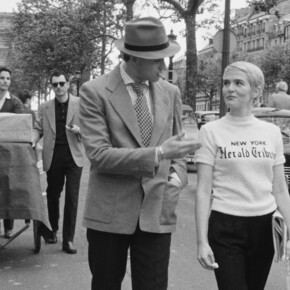Man jailed for sexual assault of minor he met on social media
Dublin People 30 Jul 2025
This article contains extensive references to rape and sexual assault involving a minor. Reader discretion is advised.
By Eimear Dodd and Niamh O’Donoghue
The father of a vulnerable teenage girl has called the actions of a man who sexually abused his daughter after meeting her on social media as “callous and selfish”.
The 24-year-old man was convicted of attempted oral rape, sexual assault and engaging in a sexual act with a child under 15 following a Central Criminal Court trial earlier this month.
Ms Justice Karen O’Connor sentenced him to six-and-a-half years imprisonment with the final six months suspended on strict conditions. The man cannot be named by order of the court. He has no previous convictions.
The court previously heard that the victim in this case was 14 at the time and is highly vulnerable.
The man and the girl had engaged on social media, before arranging to meet in person in Dublin. The day after their first meeting in November 2023, they engaged in sex at his apartment, where the man also sexually assaulted the girl and attempted to rape her orally.
Reading a victim impact statement on his daughter’s behalf, her father said “my little girl was the victim of a crime, plain and simple. There is no other way to describe what happened to her”,
He described his daughter as “too sweet and trusting” and said that is why she was taken advantage of, later calling the man’s actions “callous and selfish”.
He said she went from an outgoing and friendly teenager to a “scared” young girl who reverted to behaviours she had given up, including playing with dolls. He said she experienced sleeplessness, sadness and other mental effects.
The girl’s father said she only felt safe at home under his protection, stopped going out and felt judged by others for her mistakes “even though she hadn’t committed any and no one knew what been through”.
Later in the statement, he said a person would have to be his daughter’s age and have her vulnerabilities and “sweet, trusting, innocent view of the world to understand how excruciating the last two years has been for her”.
“I don’t think you are capable of that level of empathy otherwise you would not have taken so much from her”, he continued, describing the man’s actions as “selfish”.
He said he has told this may be with the girl for the rest of her life, adding that it will always be with him and the rest of the family.
He said the only solace was that the jury “saw you [the defendant] for what you are” and found him guilty.
“My hope for the future is that she never sees or hears about you again,” he said. “that you fade into her past”.
In letters of apology to the court and the injured party’s family, the man said he was sorry and described his actions as immature and shameful.
The man said he wanted the injured party’s family to know “I’m not evil, I didn’t think things through” as he should have.
He said he realised his mistakes can cause a lot of damage and apologised for his actions. He said he would “avoid any risk of meeting a minor” and “ensure everyone I talk to is an adult”.
He said this was a “wake up call” about how a teenager and their family can be affected and noted his responsibility to ensure this never happens again.
Ms Justice O’Connor noted the man’s previous diagnosis of autism and his traits of attention deficit hyperactivity disorder.
The judge said the age disparity is a significant factor and was particularly relevant as the victim was a 14-year-old with intellectual difficulties.
The most significant aggravating factor is the effect the offending had on the victim who continues to suffer as a result of the offending, said the judge.
Ms Justice O’Connor said the man could not avail of the most significant mitigating factor as he did not plead guilty and took a trial date but could not be penalised for it.
She noted the defendant had no previous convictions and had very significant difficulties as a young child and was “abandoned here” but was “hardworking” and “capable of overcoming adversity.”
In the victim impact evidence, the girl’s father said the family moved to protect her and give her relief from negative memories.
He said her “intimate secrets” were “exposed” during the trial, “stripping her right of privacy” and making her “subject to scrutiny in front of a judge and jury”.
His daughter only started to sleep better after the trial had concluded, and she was reassured she would never see the man again.
He said one of his most important duties as a father was to protect her from harm. “I failed to protect her against you. That will haunt me for the rest of my life”.
He said he is more suspicious of others, overprotective and noted the impact on his other children.
He described his daughter’s engagement with gardai and other agencies in the run-up to the trial and that she wanted it to go away, not understanding his desire for justice.
He said “that is how innocent she is”, noting that she “braved” the process “for my sake” and in seeing his pain she knew it was important to get througfh.
He said she never complained, but her life was suspended over the last two years.
He said he read this statement to her and she “could see the pain in my voice and my face”.
She told him she was glad it was over and she’d get her phone back. “That shows her level of understanding of the process”.
He said he hopes one day to be able to forgive the man for what he stole from his daughter and family for his and his family’s sakes.
He said he knew he would never forgive himself, but hoped he and the family could move on.
Ms Justice O’Connor thanked the man for the “eloquent and helpful” statement. She said the court couldn’t imagine how painful and difficult it would have been for the man to prepare the statement, but said it was clear at all times that “you are doing the very best for your daughter”.
An investigating garda gave evidence that the injured party’s family became concerned as they could not locate her using her phone or an airtag.
A sibling accessed the girl’s social media in the hopes of finding her location and came across inappropriate messages between the injured party and the defendant.
When the injured party arrived home later that evening, she appeared to be under the influence of something and told her sibling she’d had sexual intercourse with a man.
Their father was made aware and gardai were immediately notified.
The girl was taken to a sexual assault treatment unit and later helped gardai to identify an apartment complex where she had gone with the defendant.
When interviewed by specialist gardai, she said she met the men through social media and they made arrangements to meet in Dublin City Centre, where they hung out.
The next day, they met again and went to his apartment.
She told gardai, they went to his bedroom and “then we did it”. She said she later masturbated the man.
She also described him putting his penis to her lips, but refusing to open her mouth and saying no. She said he got mad and asked “why wouldn’t I suck it?”
The girl told gardai he rolled her a joint, then they left his apartment and she returned home.
CCTV was played during the trial showing the girl and the defendant arriving and leaving the apartment complex together.
The jury were also shown video capture of the social media messages seen by the girl’s sibling. These messages included some graphic and explicit material sent by the man to the girl and explicit conversation between them before their first meeting.
The man’s apartment was searched in November 2023, and he was interviewed by gardai in May 2024.
He accepted having sex with the girl, that she masturbated and said he asked her for oral sex.
He said he thought she was older then 17 and there were “no red flags”.
The investigating garda agreed with Michael O’Higgins SC, defending, that his client was co-operative when interviewed and gave his perspective.
Mr O’Higgins read extracts from letters written by his client to the victim’s family and to the court.
The defendant said he was sorry for causing so much pain and sadness and acknowledged his responsibility.
The man said he was “immature”, and it was “shameful” that he had been “so stupid”, ignoring his responsibility as an adult.
Mr O’Higgins asked the court to consider all of the circumstances in which this offending occurred.
A psychological report was also submitted to the court, which outlined the defendant’s background and assesses him at a medium risk of re-offending.
Mr O’Higgins submitted that his client has shown some insight into his impact of his behaviour, but does not have a full understanding of the effect on the injured party.
He asked the court for as much leniency as possible and to consider imposing a post-release supervision order as part of any sentence.











